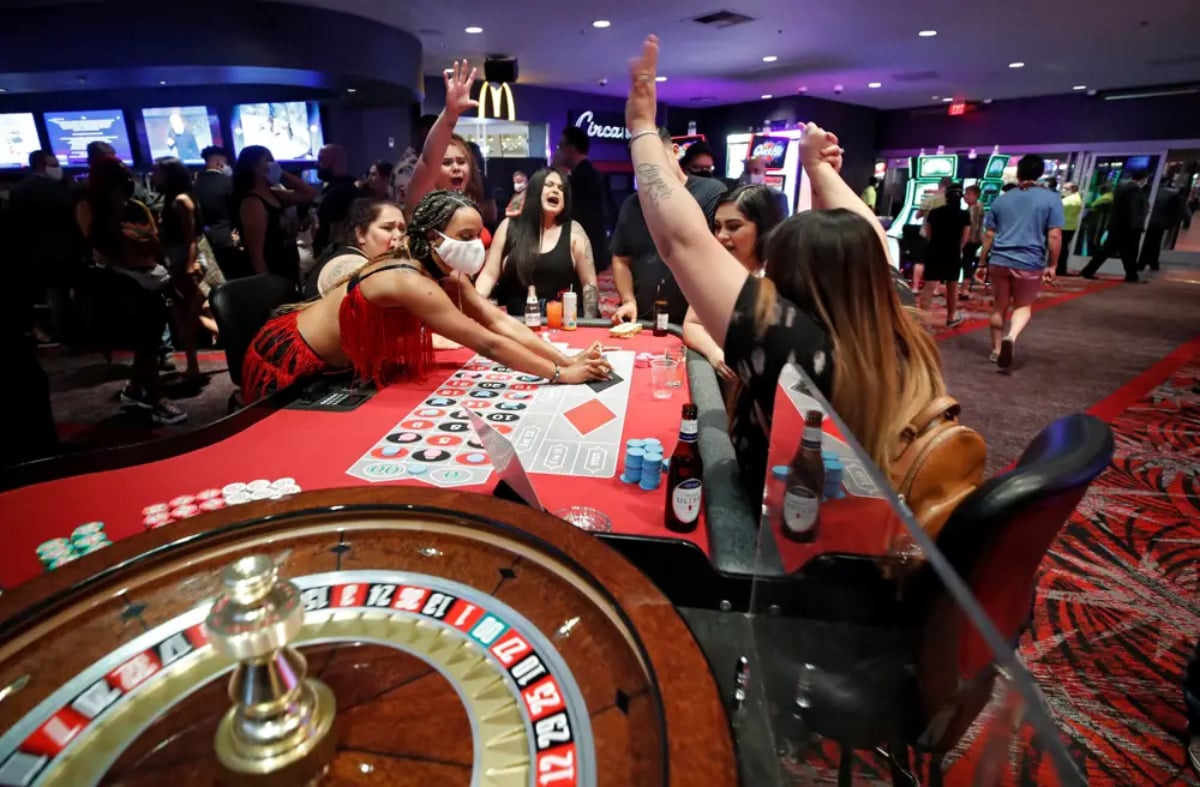VEGAS MYTHS RE-BUSTED: A Roulette Color Can Be ‘Due’
Posted on: July 14, 2023, 08:02h.
Last updated on: October 28, 2023, 07:55h.
EDITOR’S NOTE: A new “Vegas Myths Busted” publishes every Monday, with a bonus Flashback Friday edition. Today’s edition originally ran on Aug. 19, 2022.
Five red roulette numbers hitting in a row doesn’t mean a black one is more likely on the sixth spin. Even if you recognize the truth of this statement, whenever that sixth spin lands on black, it can still be difficult to resist learning incorrectly from the experience.

Some gambling hopefuls sometimes use this system to predict the next big win. But according to Anthony Lucas, a professor of casino management at UNLV and former gaming industry operations analyst, this is just another common myth. And the reason comes down to a simple math class lesson.
A common misunderstanding is that long-term averages within a random process must immediately correct in the short term,” Lucas told Casino.org. “It’s the way our brains are wired.”
Essentially, the odds of landing on red don’t increase even if you’ve landed on black 10x before. Each time you spin, the odds reset. So your chance of landing on red during the first spin or the 20th spin is the same.
Brain Chemistry
Our brains evolved to see patterns in the world around us. Detecting patterns helps us humans make predictions and informed decisions. Pattern prediction was essential for early man. Just imagine hearing a loud noise in a bush. Your ancient ancestors might have assumed the noise was from a predator, based on previous encounters.
However, this tendency to see patterns sometimes leads humans to see false patterns or places where patterns don’t exist. In these cases, this is the opposite of helpful. In roulette, our brain tries to find a pattern, such as, you’ll land on black after landing on red. But this is just an example of false pattern recognition.
Casinos know that many people believe this myth. Casinos often use electronic outcome boards that show a player’s previous spins compared to the next players, further capitalizing on this pattern recognition mindset.
Winning streaks do happen, however. As Lucas explained, “Streaks are a normal occurrence within any random process.”
These Colors Don’t Run
Ray, my childhood friend, once believed he had a system for winning at roulette. He would take me along as he checked out every roulette table in whatever Las Vegas casino he was staying in. Whenever Ray found one with four or five consecutive red or black spins, he would always bet on the other color to come up next.
Ray’s system seemed to work. He’d walk away from every two-hour session I witnessed about $500 up.
“See, I told you,” Ray would boast, questioning my logic for not betting along with him.
According to Lucas, this is similar to the slot-machine jackpot myth we busted two weeks ago. Both involve sampling with replacement.
What the typical gambler does not seem to understand, or want to understand, is that the outcomes from independent and identically distributed variables often feature large runs of single colors or even numbers,” Lucas told Casino.org. “This is normal, and there is no immediate self-correction required.”
These short-term imbalances always dissipate over the long term, Lucas explained. In roulette, the red and black numbers will come up equally on average. But in the short term, anything can happen, and that’s the only term in which gamblers are able to play.
It’s a Shame About Ray
Walking in late on one of his gambling sessions, I noticed Ray, red-faced, pacing the casino floor like a caged animal. He was obviously down a lot of money. How much, he wouldn’t admit to me until years later.
“Don’t worry, I’ll get it back,” he told me. This is when I learned that doubling down after every loss was part of Ray’s system. This is known as a Martingale betting system, Lucas explained, and no, it doesn’t work, either.
Luckily, it only cost Ray $5,000 to finally learn the lesson that the only system that works in Las Vegas is the one that gives the house a slight edge in the long run. That may have been the last time he played roulette.
“Your friend is lucky,” Lucas said, “in the sense that things could have gone much worse for him.”
Look for “Vegas Myths Busted” every Monday on Casino.org. Click here to read previously busted Vegas myths. Got a suggestion for a Vegas myth that needs busting? Email corey@casino.org.
Related News Articles
VEGAS MYTHS RE-BUSTED: The Old MGM Grand Was Imploded After the Fire
VEGAS MYTHS BUSTED: Mob Boss Bugsy Siegel Fathered the Las Vegas Strip
VEGAS MYTHS RE-BUSTED: Howard Hughes Bought Silver Slipper Just to Dim its Sign
Most Popular
Mirage Las Vegas Demolition to Start Next Week, Atrium a Goner
Where All the Mirage Relics Will Go
Most Commented
-
Bally’s Facing Five Months of Daily Demolition for Chicago Casino
— June 18, 2024 — 12 Comments
















Last Comment ( 1 )
It's funny how someone finds a system that works until it don't. Only one way to beat roulette. It's by beating the dealer, not the game. All dealers have their own idiosyncrasies, such as, spinning the ball with the same velocity every time, the wheel head, same velocity every time. Count how many spins it takes before the ball drop in it's final resting place. So, if the dealer released the ball on "0" & it landed on "27" "00" "1" it means the ball landed 17 & 1/2 revolutions let's say after the point of release, you now own that dealer. Verse yourself on the dealer, not the game. Learn point of release & final spin result, you'll own the game.